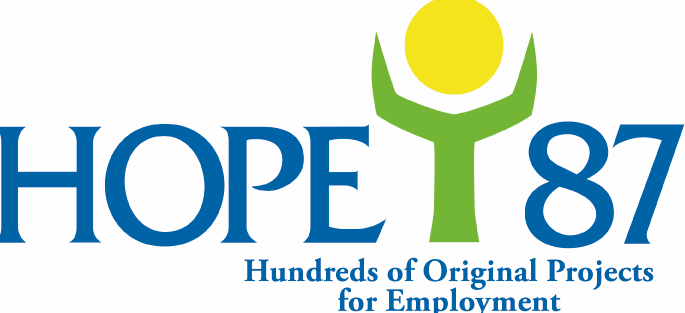A presentation by Madlen Behrle and Lorenz Harderer
Good evening everybody, I hope you had a wonderful day so far here at the Humanitarian Congress. Thank you for the warm introduction Professor Schubert.
My Name is Madlen Behrle. I am a 26-year-old social worker from Vorarlberg, Austria. Currently I am doing my master’s degree in social work, social policy and management in Innsbruck.
Good evening ladies and gentlemen, my name is Lorenz Harder, and I am also a social worker from Germany. I am 23 years old and did my bachelor at corporative state university. Like Madlen, I am currently doing my master study program in Innsbruck.
As young social workers, as you probably all know, we always drink our coffee and discuss a lot. Among a lot of things also the future challenges of humanitarian aid.
Also, as young social workers we face the effects of humanitarian crises every day. With a wide range of fields of action, social work is always an active or passive part of humanitarian aid. If it is the work on-site in the crisis’s areas, or if it is the work with victims of humanitarian crises in countries where they are fleeing to – for example the work with refugees is a big part of nowadays social work –
Therefore, a strong attitude, principle values and a common understanding of ethical questions are required.
As social workers we are especially committed to three of these principle values:
First: the code of ethics; Second: the human rights; Third, and most importantly: the people.
The code of ethics as a fundamental value – human rights as the supreme principle to be defended. Social workers have the responsibility to fight against and eliminate all violations of human rights. The realization of human rights as the supreme principle involves the inclusion of marginalized, socially excluded, dispossessed, vulnerable and at great risk groups of people. We must enable them to identify and address the barriers, inequalities and injustices that exist in society.
Social work is ahuman rights profession from its basic conception, whereby an essential basic principle is the valueof every human being. The main aim is to promote fair social and economic structures for everyone.
Since social work engages in all fields of activity, from working with the elderly, working with children and young adults to refugee work or within the field of health care, the future of humanitarian aid is in the hands of future social workers.
It is the responsibility of social workers to take the debate on ethics, human rights and humanitarian aid into their own hands.
This takes devotion and above all courage. The courage to make grievances public and to fight against injustice. The courage to confront and to discuss. The courage to position oneself and above all the courage to take a step into a justfuture.
So how can social work guarantee humanitarian aid in the future?
It cannot. Social Work cannot…At least not alone. One single profession cannot do nothing facing the humanitarian problems of tomorrow. But many can. And that is why we are here today. We want to stimulate an exchange on how we all can, in cooperation, handle the difficulties of humanitarian aid.
Well, this is, of course, not the fantastic realization we want to present today, because the importance of interdisciplinary cooperation has already been recognized a long time ago.
But we have been waiting for to long for others to cooperate with us. It is our responsibility as the future generation of young people working in the sector of humanitarian aid to become active and work much closer and stronger together than ever before. If humanitarian crises grow, our network and our cooperation’s must grow as well. Because we all have the same goal.
Thank you and enjoy the evening.
UN-Migration Compact: united, rather than divided
Abstract of the Positioning Paper of the Study Programs of Social Work in Austria
The Austrian government rejects the signing of the UN migration compact. Among others, Chancellor Kurz and Vice-Chancellor Strache oppose a human right to migration.
Austria has been an exemplary supporter of the United Nations and international law for decades. With this decision, the Austrian government sends a fatal signal to the international political landscape and accepts that other member states will also follow its example.
Austria rejects 17 points of the 23 objectives of the UN Migration Pact. These include points such as the prosecution of hate crimes, information about legal possibilities of prosecution in favour of the victims of hate crimes (complaints, damages), the prevention of migrant profiles based on race, ethnicity or religion or the motivation to uncover intolerance. It is incomprehensible to the student body of Social Work as representatives of the human rights profession how these goals can meet this so much resistance from the Austrian government.
The Migration Compact is not a question of Austria’s national sovereignty. It represents a legally non-binding cooperation framework. It is a sign of solidarity, helpfulness and empathy. The UN Migration Compact is based on the Universal Declaration of Human Rights and respects the principles of non-discrimination. The implementation of the compact ensures that the human rights of all migrants, regardless of their migration status, are effectively respected, protected and guaranteed throughout the migration cycle.
The student body of the Social Work programs in Austria sees it as its ethical and professional duty to reject the handling of the Austrian Federal Government and calls on the Federal Government to act in accordance with this position paper and to sign the UN Migration Pact!
The non-signature of the Compact has not only consequences for international cooperation but also direct consequences for the addressees of social work, for professionals themselves and for social norms and patterns.
Principles of social work are principles such as respect for inherent value, recognition of the dignity of being human, not to harm anyone, recognition of diversity and the defense of human rights and social justice. The most obvious manifestation of the raison d’être of social work is its commitment to the realization and implementation of human rights and the defense of social justice. It also refers to all three generations of human rights, which include both individual and collective rights. (Cf. IFSW 2014[1])
The privatization or individualization of socially caused problems is viewed critically. It is the task of social work to turn these problems back into publicly noticed problems (public relations and educational work). The establishment and maintenance of humane social structures, which is achieved with the help of socio-political activities among other things, is central. Human rights as a basic idea and orientation allow social work to get out of heteronomy and modesty. Their realization and the enforcement of human rights are impossible without political action. (Cf. Staub-Bernasconi 2008[2])
In addition, social work needs explanations, through comprehensive quantitative and qualitative analyses of the circumstances of its addressees, about the causes of human rights violations and thus also problematic living conditions. These mostly experience people who are considered minorities and are exposed to structural discrimination and violations, especially migrants. Politics and social work are closely linked and not only in a historical context. This can be well observed in the field of social policy, where important resources such as care and sickness benefits or accident and pension insurance are determined by politics. Access to resources is also politically defined. Economic, social and cultural rights, which are regarded as the core of the political mandate of social work, are particularly threatened here (Staub- Bernasconi 2008, p.232). With regard to such human rights violations, social work has a political function. (Cf. Benz et al. 2013, p. 18[3])
[1]IFSW, International Federation of Social Work (2014): Definition mit Kommentar. Übersetzt von Beat Schmoker. Online im Internet: http://www.sozialarbeit.at/files/definition_deutsch_lang_avenirsocial.pdf (Zugriff am 28.11.2018)
[2]Staub-Bernasconi, Silvia (2008): Menschenrechte in ihrer Relevanz für die Soziale Arbeit als Theorie und Praxi, oder: Was haben Menschenrechte überhaupt in der Sozialen Arbeit zu suchen? In: Wiedersprüche, 28. Jg., S.9-32
[3]Benz, Benjamin et al. (Hrsg.) (2013): Politik Sozialer Arbeit. Band 1: Grundlagen, theoretische Perspektiven und Diskurse. Weinheim und Basel: Beltz Juventa


















